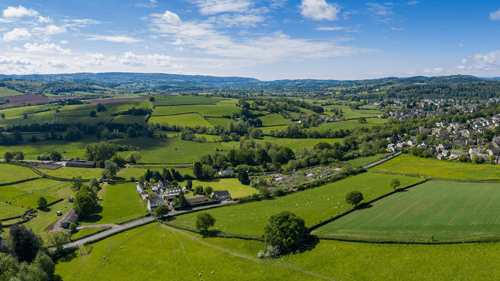Overage on the Rise
We are currently seeing an increasing amount of land being sold subject to overage. Here we answer some key questions about this complex agreement.
What is overage?
Overage, which may also be known as “clawback”, is used where land is being sold without the benefit of planning permission, but the seller wants to share some of the increase in value if planning permission is obtained in future.
It is usually payable in one or two circumstances:
- when planning permission is granted; or
- if planning permission is obtained, on the earlier of (i) that planning permission being implemented or (ii) the land being sold with the benefit of that planning permission.
How much is overage worth?
The amount of overage payable is entirely a matter for negotiation. It is usually referred to as a percentage of the increase between the value of the land without the relevant planning permission, and the value of the land with such planning permission. The percentage can vary from anywhere between 10% and 50%, although it is usually much higher for rural land than for urban.
Less often, the overage may be a fixed amount, although this can work both ways. If the land has significantly increased in value, the developer may end up having to pay less overage than if a percentage of the increase in value had been payable. Conversely, if land values decrease, the developer may end up having to pay a higher amount than would otherwise be the case. Fixed amounts are really only suitable, if at all, where the overage terms will only apply for a short period.
When does overage get paid?
The period for which overage is payable needs to be specified in the overage document (which may be a stand-alone deed or included in the transfer itself). Again, the period is entirely a matter for negotiation but again, it is usually for significantly longer periods for rural land, compared to urban.
Should I seek professional advice?
We would always recommend that the terms of overage are clearly agreed, in detail, before the sale terms are finalised. You should always take advice from an agent who is experienced in dealing with overage, who will be able to advise you as to the likely overage percentage and period that can be obtained for the land in question. It is also important that the buyer completely understands the consequences of entering into the overage terms – before the heads of terms are finalised – as otherwise you may find that once the buyer has taken advice from a solicitor, they are no longer willing to proceed on those terms.
Please also be aware that overage is likely to significantly increase both your legal costs and the amount of time required to get to completion, as it needs quite complex drafting. Overage is essentially a gamble, as there is no certainty that you will ever actually receive any overage (as the buyer may never apply for planning permission) and even if it becomes payable, the amount may not be significant. It is therefore worth considering whether this is actually the right mechanism for you, or whether you would prefer to agree a higher sale price instead. A good agent will always be able to advise you as to the pros and cons of this, in the particular circumstances and at the particular time. We would always recommend that both the seller and the buyer take advice from an independent agent before agreeing any overage terms.
Here to Help
If you are in need of advice on any land issues, please get in touch.
Please note the contents of this blog are given for information only and must not be relied upon. Legal advice should always be sought in relation to specific circumstances.

